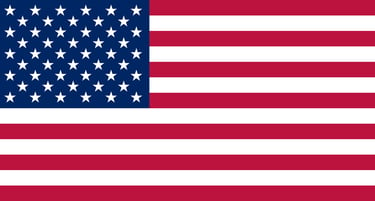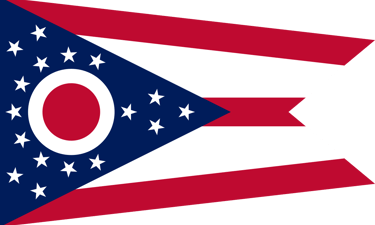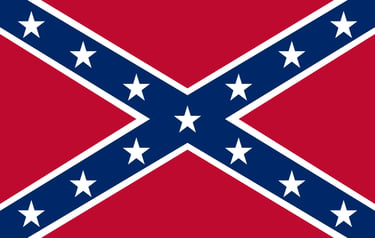The Maurer liberal republican flag
An American political flag rooted in historical awareness and authentic American ideology


Progressive patriots
People who believe in an American dream for everyone.
People who refuse to let ignorance, self-serving nationalism, anti-intellectualism, and hate define our historical and patriotic identity.
People who want to be proud to be an American, even if some of us don't think we can be right now.
People who recognize the progress of the human race — toward a more equal, free, peaceful, and Enlightened way of living — as the goal of the American experiment.
People who will fight for that goal, who see the bright future we could have:
a future of humanitarianism, philanthropy, fraternity — of leading the world to a brighter day.
Historically aware patriots, who can look at the actions and beliefs of our predecessors with admiration when appropriate, and still see their shortcomings.
Patriots who work to continue the work of the Enlightenment, and to right their wrongs — just as we hope posterity will right ours — for the love of humanity and the dream of creating an asylum for all mankind.
Who this is for
Symbolism


The white symbolizes peace. The use of Old Glory Blue signifies a connection to the United States. The meaning behind the blue is the same as in the United States Flag, Vigilance, Perseverance, and Justice-enduring values fit for a free people. All of the symbols are in white, to show that these principles are founded on a desire for peace, even our willingness and duty to bear arms; yet the blue is ever present, a reminder that we must ever persevere, remain ever vigilant, and never let justice leave our thoughts. The heart is also blue, not meaning that peace is not to be loved, but that the republican heart beats forever for justice and that it never falters.
Radiating from the flame are rays of light, spreading warmth and guidance — like liberty itself, like love. A beacon for all mankind that we will bring the natural rights innate to all people to them no matter their station in life or where they live, that the true republican people of America will, like missionaries of liberty, protect these rights where they live, and bring them to where they have been expelled from.
The Flame of Love and Liberty. A symbol of the natural rights of mankind.
The flame represents Liberty — a powerful force that, like fire, must be carefully tended and protected.
At its core burns a heart, symbolizing Love — the love of liberty, which is rooted in a love for the wellbeing and happiness of all mankind, a love that begins with a love for oneself and extends outward to others.
The fire and heart being together shows how these natural rights are intertwined, and together they symbolize life, the supreme natural right.
The Muskets bring to mind the minutemen. They were a weapon of war wielded by common citizen soldiers to defend their lives and liberty. They symbolize the need for republican Citizens to defend their rights and freedom, even against their own government, even if by force of arms, and to make sacrifices if needed. It was their right and their duty. The placement of the muskets crossed over the Flame of Love and Liberty strengthens this image. While liberty is born of love, it must be defended with strength and sacrifice.








The pillar evokes republican Rome. It represents order, rule of law, civic virtue, the solid foundation of liberty, just as the pillar is literally the foundation for the fire. It also shows that republicanism is solidly rooted in an understanding and immersion in history. Just as the founders immersed themselves in the history of classical Rome to understand, define, and defend their values, we must immerse ourselves in the history of our nation if we want it to persevere, remain true to itself, and to improve.
This flag consciously invokes the twin pillars of Liberalism — Liberty and Equality — and the enduring values of republicanism: civic duty, sacrifice, and the rule of law.
It is a call to remember the revolutionary spirit of the early American Republic — a spirit that has too often been misused, misunderstood, or abandoned.
It is a reminder that although these principles are grounded in the peace all kind and free people cherish: that liberty, to live, must be loved, fought for, and built on a firm foundation.


Name
liberal
republican
What it doesn't mean:
Leftist, or member of the "Democratic" party.
What it does mean:
Believer in and supporter of individual freedom, the equality of all people before the law, the protection of natural rights, and the limitation of government power to preserve personal liberty.
This name has been chosen for a very pointed and specific reason.
These words need to be reclaimed.
American political discourse completely mangles the meaning and context of our history and the language we use to understand it, and as a result the language we use to understand ourselves.
These two terms, maybe the most important in American history, have been altered beyond recognition; bastardized and used inaccurately, attached to political parties that have become disconnected from the names that represent them, while their original meanings are lost to us.
This alters the discourse around American ideology and makes it impossible to understand our identity as Americans; therefor these idea must be reclaimed and put in their proper context.
What it doesn't mean:
Conservative or member of the "Republican" party.
What it does mean:
An individual who hopes and strives for a society that cultivates the ultimate aims of liberalism; supporting and cultivating it through civic virtue, rule of law, popular vigilance against corruption and tyranny, the dissipation of political power, the necessity of moral and economic independence of all people, the duty of citizens to participate in their society for the greater good, sacrificing personal interest to public interests.
Historical Context
American history has been hijacked, manipulated, and (in many cases deliberately) misrepresented.
The ideals of Liberalism and Republicanism were, in the early republic, touted as the most beloved and fundamental ideas to American society and culture.
Today the values that were once so self evident are now hotly contested, and the words we use to understand them are used to push agendas wholly opposed to the true ideals.
Liberalism, something that should be embraced by all Americans is so misunderstood as to be used as an insult.
Republicanism is something totally lost to us, its sacrifice, civic duty, and belief in the greater good usurped by a strain of individualism that believes only in acting in one's personal interests.
American history is not a clean and clearcut narrative as it has been frequently mythologized to be. There are many conflicting ideas in our history. Yet, within our political discourse, especially in the revolutionary generation, there are some of the most beautiful ideas ever put forward.
The revolutionary generation was, while believing deeply in tradition, radically progressive in many ways.
Tradition, to them, was not dogma to be followed blindly, but a set of customs that had stood the test of time, and when society found something outdated it should rightly be removed or replaced with something befitting the age.
They challenged a hierarchal, hereditary, and corrupt social structure and posited a utopian vision of egalitarian brotherly love and virtuous selflessness from a wise, kind, and just people.
They believe that rights were innate to human beings, and although through action such as perpetuating slavery, they let themselves, their people, and posterity down in the most egregious way possible; by establishing an ideology of benevolence, equality, and the spread of liberty to all peoples, they laid the ground work for progress that they could not imagine in their own day.
Progress was the fundamental goal of the Enlightenment, a movement the revolutionary generation based its beliefs upon.
Sentimentality
There is a struggle that has existed in America since its inception. On one side; the ideal of embracing human empathy and emotional openness, celebrating our love for one another, and expressing it in the strongest terms.
On the other a reactionary revulsion of emotion as a negative and a weak trait because it is associated with being feminine.
The founding generation valued sentimentality immensely and its decline saw the rise of hateful, cynical, self-centered, insecure masculinity that excluded these most valuable aspects of human nature. This attitude, which lives on today was used to attack sympathies for enslaved Americans as weak and "womanly".
The burden of public service
Public service is a burden accepted by those who know they are capable. It isn't supposed to benefit the individual, it is a sacrifice they make to the common good to give up their time, privacy, peace of mind, and management of their private affairs.
Education
It was once an accepted truth that education was necessary to lift citizens up, to make them capable, competent, informed participants in politics. It was understood that for people to be truly free an independent they had to understand the world around them.
Unfortunately anti-intellectualism has come to dominate our society. Our beautiful love of equality has been twisted by charlatans who want to manipulate those who mean well but are uninformed and make them think that one mans ignorance is just as good as another's expertise.
Disinterest
Those participating in politics were expected to rise above their own desires, or the specific desires of the group they belong to or represent. Politicians were suppose to be enlightened umpires, impartial and without private interest. Private interests had no place in politics and the idea of interest groups legitimacy today would be shocking and appalling to the founders.
Self cultivation
Idealistic optimism fueled a wave of self improvement within the young nation. There was a belief that we could all seek to better ourselves, to become more educated, more open minded, more sympathetic to others, more open with our emotions, that we could all be better and make a society that was founded on mutual respect.
Independence
Independence meant something distinct from freedom or liberty to the founding generation. It was understood more literally, to not be dependent on someone else. It was believed that independence from landlords and employers was a necessity for practical participation in a republic. This was sometimes use as justification for oppressing the poor, but was sometimes taken to its logical conclusion within an egalitarian society that a general level of economic equality and property ownership must be supported.
Philanthropy
The language of philanthropy is everywhere in early America. There was always talk about uplifting the downtrodden and accepting the weary who flee tyranny. A person or a nation cannot justly pursue their own self interest alone and ignore any moral obligation to those in need.
Below are some of the values that were so important to that generation that have been neglected by modern Americans seeking to use the past to understand the present.
Natural rights
Rights were understood as absolute truths that all persons possessed. They are not mere privileges that are given nor can they be justly and lawfully taken away.
The pursuit of knowledge
One of the many ways that the legacy of the founding has been distorted is by twisting the meaning of the "liberal arts", a if they represent some set of partisan viewpoints. In reality what they have always represented is a broad base of knowledge of various topics to make a person able to understand the world and make informed judgments. Some would call it an education "befitting a free people".
Historical awareness
Those individuals who took part in the war for independence and the war for the character of the nation recognized their unique position. They understood that they would have a place in history. History was an important thing to understand, it was important to learn from the past, to avoid previous shortcomings and bring light to lost virtues. They were particularly interested in the fall of republican Rome, and it was a common practice to use the names of roman republicans as pseudonyms. In this way the founding generation looked to the past.
Posterity
For those who found themselves in the center of fame and power in early America, the "unborn millions" were a constant concern. It was a concern what would be left to them and it was a concern how they would judge their predecessors. In this way, the founding generation looked to the future.
Duty
Freedom to the founding generation did not mean that people should do whatever is in their own interest, they did not respect and certainly did not celebrate selfishness as is so common now. Contrary to what modern Americans assert, the founders did believe that we owed something to other people, that we owed something to the common good. They did not believe that individual freedom meant that everyone ought to take care of themselves and only themselves.
Weariness of power
The founding generation was distrustful of power, they knew power was something that men sought to accumulate, to hold over others, and that if unchecked, would threaten to overpower their liberties.
Protective of rights
If you want to keep your freedom, you mut be aware of them, you must hold them as sacred, and you must defend them. Americans have lost their vigor, they have grown disheartened and do not fight for what all people have claim to. We expect those in power to do what they want and get away with it. If it doesn't shock us, if it doesn't frighten us, if it doesn't spur us to action, then we are doomed to continue to spiral.
Virtue
The founders rejected the notion that politicians should not be judged as people. They believed personal conduct to be critically important. They strived to hold their leaders to moral standards.
Labor and Leisure
Early American beliefs about the role an value of labor stand in stark difference to modern notion of American work ethic.
On one hand, elitism did lead many to look down on laborers, not having bought into the then radical notion that labor was the source of value. On the other hand, the educated elite understood rightly that constant laboring ultimately inhibits an individual's ability to cultivate themselves, to be creative, spontaneous, and to educate themselves.
Political meaning
Patriotism does not belong to nationalists. Our historical identity does not belong to conservatives. Being progressive is not unamerican, it is the most American thing you can do. This flag is for the politically progressive patriot to fly with their American flag, to show the world that they believe in the American promise, and that they understand it better than the malignant charlatans and ignorant pawns that lay exclusive claim to it.
The idea for this flag was born out of the distress of not being able to fly an American flag without being associated with groups who misrepresent American patriotism. There are many flags that can be flown next to an American flag, yet they are either directly associated with these groups, or represent valiant progressive causes, that just aren't directly related to American politics, history, or ideology.






















It is based on the humanitarian belief that politics, foreign and domestic, should be driven by the fundamental principles of American ideology, not simply economic interest.
While we must act to protect our own sovereignty, to ensure we are not mistreated internationally, and to help America prosper, we must also stand by our ideals.
The powerful must stand for the weak.
The free must raise up the oppressed.
The land of Liberty cannot sell its soul to foreign dictators for economic benefit.
For just as Thomas Paine said that the cause of America is the cause of mankind, the cause of mankind must now be the cause of America.
For American exceptionalism is not a birthright bequeathed to us by god, but something that can only come from our actions.
A country ought to be a system that serves to better the lives of its people, power and wealth mean nothing if their benefits are not felt by people.
A country as powerful and prosperous and secure as ours, has a duty, as a rich man does to a beggar, to lift up those less fortunate.
Our nation has the potential to be a system not only that brings peace, freedom, and prosperity to the American people, but to all mankind.


Ten Points of Reform
1. We reject authoritarianism, nationalism, oligarchy, fascism and their policies.
Nationalism is antithetical to progress and open discourse between peoples and nations, authoritarianism is antithetical to liberty, oligarchy is antithetical to equality, and fascism is antithetical to empathy and reason. These ideologies are fundamentally un-American, have a corrosive impact on our principles, and must be rejected and fought at every juncture.
2. We want electoral reform to end two party dominance and private influence over the institutions of our Republic.
We believe that the rampant and unchecked ability of monied interest and corporations to lobby our elected officials and fund their offices and campaigns has indelibly eroded the integrity of our Republic and the Will of the People. It is paramount to remove the ability for corporations and the ultra rich to donate unchecked sums of money to influence elections and legislative outcomes.
It is paramount to move our electoral system away from plurality and into ranked-choice voting to allow for voters to vote for candidates who represent their interests, to support political diversity, and create elections that represent the popular will.
The electoral college must be abolished so that every vote counts equally.
The President must be elected for single six-year terms to ensure their actions are for the interest of the people and not reelection.
3. We want a dramatic strengthening of protections to the right of education to all Americans.
Making high quality and high level education befitting a free people accessible to everyone and supporting the general public's expansion of knowledge in all forms, including those fields which are necessary for a broad understanding of the world such as literacy, mathematics, and the sciences, as well as those topics necessary to the healthy functioning of a republic: civics and history.
4. We want systems that can hold civil servants accountable.
Public servants such as political officeholders and law enforcement officers must be held accountable for subverting their duties and the rights of their fellow citizens for personal gain or negligence.
There must be no legal immunity for public servants.
Ignorance of the law can not be a legal excuse for negligence.
Checks on abuse of power such as impeachment and removal must be made attainable.
Open supreme court justices up to impeachment.
5. We demand stricter credentials of education, experience, and competency to qualify for high office.
The government must enact strict yet fair and impartial requirements for accreditation for higher education, and officials be required to have earned a relevant degree from an accredited institution to the office they seek to occupy, or have substantial experience in the field.
6. We want economic reform to fight income inequality, bring the working class out of dependence, and end the excessive hoarding of wealth and power.
Those without property and wealth cannot hope to match the influence of those who do. It is therefore necessary in a republic to restrict inequality to a tolerable level, thus creating the free, equal, and independent populace required for a functioning republic
Re-establish and energetically enforce anti-monopoly laws to encourage competition.
Fight predatory practices targeted at consumers and employees by large companies.
Ensure zoning laws do not harm the availability of affordable housing.
Implement a mandatory equitable pay ratio so that within any given organization, the highest compensated individual may not be compensated over 200 times more than the least compensated individual.
7. We must take our place as a world leader in the protection of the natural rights of all human beings.
If the United States wants to believe itself exceptional, then it must realize the vision of a beacon of liberty and defend human rights at home and abroad, earning the respect of nations and standing upon firm enough moral ground to challenge human rights violations internationally.
All rights protected by the United States, its constitution, laws, and ideals, are natural rights belonging to every human being, save those related to determining the organization and function of the American government.
8. We call for Law enforcement to be demilitarized and restructured as an organization truly designed for community support.
Reducing accountability measures on law enforcement and limits on their authority over citizens does not make the job of honest good faith law enforcement officers "easier", it simply allows for abuse by a small group of bad faith individuals to tarnish the reputation of their fellow officers and the institutions they serve. For law enforcement to earn the respect, support, and cooperation it requires from the people it must be accountable and organized in a manner that prevents abuses of power and supports the community.
9. We reject cynical governance and call to root our policy firmly in the Enlightened principles of American governance.
The United States is not a business to be driven solely by economic interest. It is a government created by a people who demand their governments actions be rooted in justice, empathy, liberty, and public good, regarding both foreign and domestic policy.
10. We, the American people deserve a greatly revised constitution that enshrines the Enlightened and progressive ideals of this nation and brings the founders vision forward, into a new age, expanding and further realizing it.
It is necessary to call a new constitutional convention elected by the whole people through a modern election process that truly represents the popular will and has both reverence for the ideals of our predecessors but a forward thinking understanding of how to apply those ideals to a time that has seen much progress since the founding.
